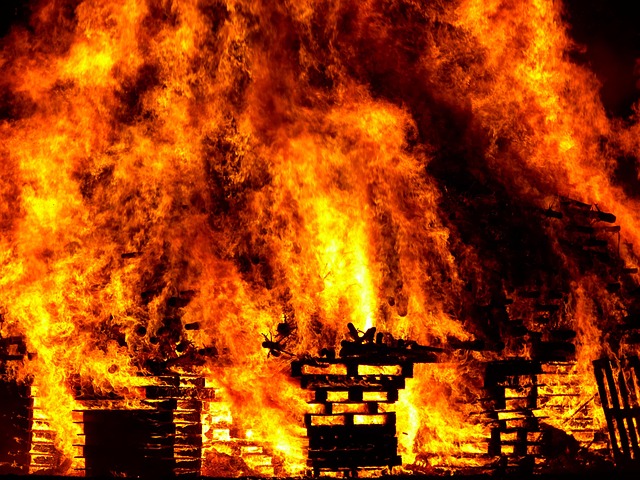Latest Gas Safety Reforms: Certifying for Risk Prevention

Recent reforms mandate that all gas work be performed by certified Gas Safe Registered engineers to…….
Welcome to an in-depth exploration of a critical aspect of the energy sector—the Gas Safety Certificate. This comprehensive guide aims to unravel the complexities of this certification process, highlighting its global impact, economic significance, technological advancements, and regulatory landscape. By the end of this article, readers will have a thorough understanding of why gas safety certificates are indispensable in ensuring the secure and sustainable use of natural gas.
A Gas Safety Certificate (GSC) is a legal document that guarantees the safe installation and operation of gas systems within residential, commercial, or industrial properties. It involves a comprehensive assessment of various aspects related to gas piping, appliances, ventilation, and overall system integrity. The certificate ensures that these systems meet specific safety standards, minimizing the risk of leaks, explosions, or other hazardous situations.
The core components of a GSC typically include:
The concept of gas safety certification has evolved over centuries alongside the growing use of natural gas for heating, cooking, and lighting. Early industrial accidents involving gas leaks prompted the development of rudimentary safety standards. Over time, these have transformed into comprehensive regulatory frameworks to address the unique risks associated with flammable gases like methane, propane, and butane.
Today, GSCs are mandatory in many countries, reflecting a global shift towards prioritizing public safety and environmental protection. This certification process has become a cornerstone of responsible gas distribution and utilization.
The impact of the Gas Safety Certificate extends far beyond individual nations, as it plays a pivotal role in international trade and energy security. Standardized safety protocols facilitated by GSCs foster trust among global partners, enabling the safe transportation and exchange of natural gas resources. This is particularly evident in regional agreements that require reciprocal recognition of safety certificates to streamline cross-border energy trade.
While the core principles remain consistent, GSC requirements exhibit regional variations:
| Region | Key Focus Areas | Notable Trends |
|---|---|---|
| North America | Strict adherence to American National Standards Institute (ANSI) and National Fire Protection Association (NFPA) guidelines. Emphasis on regular inspections for aging infrastructure. | Increasing adoption of smart grid technologies for remote monitoring and leak detection. |
| Europe | Harmonized standards across the EU, with a focus on digital documentation and interoperability. Integration of renewable energy sources is encouraged. | Growing emphasis on energy efficiency and reducing greenhouse gas emissions through stricter safety protocols. |
| Asia-Pacific | Rapid urbanization drives demand for efficient gas infrastructure. China has implemented rigorous safety measures following major accidents. | Governments are investing in advanced monitoring systems and promoting public awareness campaigns to improve safety culture. |
| Middle East & Africa | Focus on robust safety standards due to harsh climates and large-scale industrial operations. | The region is witnessing a boom in liquefied natural gas (LNG) terminals, leading to stricter GSC requirements for port facilities and pipelines. |
The Gas Safety Certificate market is influenced by several economic factors:
GSCs significantly influence investment decisions within the energy sector:
Technological advancements have revolutionized gas safety certification:
These innovations have led to more efficient, cost-effective, and accurate GSC processes. In the future, expect:
The regulatory framework governing GSCs varies across jurisdictions but typically includes:
Some notable legislative frameworks include:
Despite its critical importance, the Gas Safety Certificate process faces several challenges:
Addressing these challenges requires a multi-faceted approach:
The UK’s Health and Safety Executive (HSE) has implemented a robust GSC system that includes mandatory inspections every five years for all gas installations in residential properties. This regulation has led to:
Singapore’s National Environment Agency (NEA) has integrated GSCs into its smart city initiative by employing drones and digital twin technology. This approach has enabled:
The future of Gas Safety Certificates is poised for significant growth in several areas:
Keep an eye out for these emerging trends:
The Gas Safety Certificate stands as a cornerstone of modern energy infrastructure, ensuring the secure and sustainable use of natural gas. This comprehensive guide has explored its historical context, global reach, economic significance, technological advancements, regulatory framework, challenges, and successful case studies. As we look ahead, GSCs will continue to evolve, addressing new energy trends, safety concerns, and environmental considerations. By embracing innovation and collaboration, the global community can harness the power of gas safely and responsibly for generations to come.
Q: Why are Gas Safety Certificates important?
A: GSCs are crucial for ensuring the safe operation of gas systems, preventing leaks, explosions, and other hazards. They also facilitate international energy trade by establishing mutual trust among countries with different safety standards.
Q: Who needs a Gas Safety Certificate?
A: Any individual or organization responsible for installing, maintaining, or using gas systems in residential, commercial, or industrial settings must obtain a GSC to comply with local regulations.
Q: How often do I need to renew my GSC?
A: Renewal intervals vary by region and type of installation. Typically, residential gas systems require inspections every 5-10 years, while commercial or industrial facilities may need more frequent assessments.
Q: Can technology help improve the GSC process?
A: Absolutely! Advancements like smart sensors, drone inspections, and digital twin technology enhance safety, efficiency, and cost-effectiveness in GSC processes.
Q: Are there any financial incentives for obtaining a GSC?
A: Yes, many governments offer subsidies, tax benefits, or discounted inspection fees to encourage compliance with GSC regulations, making it more affordable for businesses and homeowners.

Recent reforms mandate that all gas work be performed by certified Gas Safe Registered engineers to…….